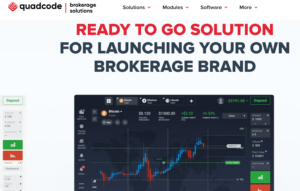Why does leverage restriction only apply in Europe for Cyprus FX brokerages?
We have seen brokers onboarding clients to unregulated offshore entities and providing non-compliant trading terms despite having a CySec license. Now there are firms allowing traders in other regulated regions to sign up for accounts and then attempt to make them responsible for trading with non-compliant leverage

Over two years ago, FinanceFeeds investigated a reasonably prevalent situation in which some small to medium sized retail FX brokerages with CySec regulatory licenses which bind them to operating under the European Securities and Markets Authority (ESMA) rulings and MiFID II market infrastructure directives have been onboarding clients to offshore entities in order to circumvent rulings on trading terms.
Aspects like leverage restrictions and ‘best execution’ procedure were parameters that certain firms sought to avoid, and in some cases continue to do so, by maintaining an office in Cyprus with a CySec license that has just a few clients on its books, whilst bringing on board the vast majority of clients from non-European jurisdictions (most Cyprus based brokers do not have any clients in Europe) via an offshore entity and offer over 1000:1 leverage with B-book execution.
In a detailed report by FinanceFeeds, we looked into the corporate and regulatory stance on this practice, the latter of which was one of complete apathy.
Today, a further point of interest with regard to this dynamic has surfaced.
Following a conversation with three experienced retail traders in Canada, FinanceFeeds can vouch that whilst the offshore entities using their sister company in Cyprus as marketing ‘bait’ and claiming to be regulated under European rulings whilst actually offering clients completely unregulated offshore accounts, some companies approaching clients in bona fide, well regulated jurisdictions outside Europe – such as Canada – are doing so from within Cyprus and offering terms that, whilst legal under a CySec license, are against Canadian regulations.
Under a circumstance such as this, the Canadian provincial regulatory authorities – Canada’s non-bank financial markets firms are regulated by separate bodies for each province – could contact CySec and ask them to issue any company that does this with a cessation order, as both Cyprus and Canada are regulated under continental structures that have cross-border collaboration.
Put simply, brokers can quite easily abuse their CySec license by using it as a marketing tool to sell retail trading accounts to non-European customers and then flout all of the rulings by putting all of that business through an unregulated sister company in the Marshall Islands or Seychelles and go completely against the customer protection that the regulators in Europe have designed the MiFID and EMIR rulings to uphold whilst the customer thinks he is safe, whilst bona fide brokerages in Cyprus who uphold the rules and seek good business from traders in non-European first world countries could land themselves in trouble!
This highlights a fundamental flaw in the regulatory structure which has long been a byproduct of a global, online financial markets industry, that being standardization, or indeed the lack of it.
Scenario A: Rip off customers by giving them an account with over 1000:1 leverage by bringing them in via an offshore entity despite their belief that they are trading with a regulated firm and get away with it.
Scenario B: Offer good quality, completely compliant trading terms to a non-European client in a high quality, financially safe region such as Canada and get in serious trouble.
It may not make rational sense, but that is one of the challenges faced by regulators and quality brokerages at the moment.
One particular Canadian trader today stated “I live in Canada and according to this site which operates in Canada for the Canadian division of Interactive Brokers, the maximum leverage is around 30 and they have to stick to that that from the Canadian IIROC regulations.”
He continued “What I want to know, however, is if use a site like from one of the larger Cyprus based brokers which allows me sign up under a Canadian residence, but under their Licenses & Regulations there is nothing about IIROC, however, under their risk warning tab they write this: “It is the responsibility of the Client to ascertain whether he/she is permitted to use the services of the brand based on the legal requirements in his/her country of residence.” So if i live in Canada and i try and use more leverage, what would happen? Or, what would happen if i used the same amount of leverage that is listed under the IIROC but on this site?”
A very good question indeed. The disclaimer mentioned, this particular one is on a well known retail firm’s website, the company also having a Belize entity, thus showing that this firm is another that engages in offshore onboarding of clients outside CySec’s remit, demonstrates that being regulated in Europe means that only European rules apply if the broker and the client are in Europe, and rather than offer blanket leverage according to the CySec license provided, it appears that the firm allows trading at any leverage, transferring the responsibility to the trader should things go awry.
One answer to this came from an experienced retail trader who stated “If you want your money to be safe, trade with an IIROC regulated broker like Interactive Brokers or Oanda, because you are in Canada and if the regulatory body, the broker and you are all in the same region, you will be better protected and the terms will be relevant.”
“Slightly shadier would be foreign brokers but regulated in first world countries, however you would still very likely be quite ok with that, but some of the small CySec brokers do not have an office in Canada and most of the time their owners do not live in Cyprus either, and therefore the funds are sent to bank accounts in a completely unregulated area. If the broker doesn’t have a physical office in your country and/or isn’t regulated in your country, you’re most likely going to find no recourse if something goes wrong, so just stick with IIROC regulated brokers if you want peace of mind. That way you can report your broker to them if you feel you’re being cheated.”
Whilst that is sound advice, it is a great shame that proper brokerages which would adhere to rules would likely fall foul of international regulatory lobbying, whereas those who completely avoid bringing any customers on board from well regulated first world regions and then do so via a ‘back door’ office on an island in the Caribbean with absolutely no trace of such accounts anywhere near a European regulatory trade reporting system would likely continue to get away with this practice.
Over the past year, we have seen the implementation of MiFID II which has completely changed the way execution practice and trade reporting along with client treatment are handled, at great expense to brokerages worldwide and with compliance officers having to literally place their careers on the line and be responsible for an entire set of very complex rulings, yet the offshore databases held by CySec brokers continue to grow, completely out of sight of the European regulators, despite European regulation being promised to customers.
FinanceFeeds has spoken to CySec on more than one occasion regarding the allowing of licensed firms to onboard clients and provide them with non-compliant offshore accounts. Today, FinanceFeeds spoke to CySec on the issue regarding leverage and potential consequences, and how this is overlooked and could cause trouble for brokers who are trying to get it right.
On all occasions, the regulatory officials replied with a metaphorical blank expression, admitting that they had no idea what either of these scenarios relate to.









